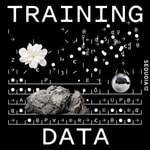Training Data – Details, episodes & analysis
Podcast details
Technical and general information from the podcast's RSS feed.

Training Data
Sequoia Capital
Frequency: 1 episode/7d. Total Eps: 57

Recent rankings
Latest chart positions across Apple Podcasts and Spotify rankings.
Apple Podcasts
🇨🇦 Canada - technology
28/07/2025#86🇬🇧 Great Britain - technology
28/07/2025#86🇺🇸 USA - technology
28/07/2025#96🇨🇦 Canada - technology
27/07/2025#84🇬🇧 Great Britain - technology
27/07/2025#54🇫🇷 France - technology
27/07/2025#77🇨🇦 Canada - technology
26/07/2025#86🇬🇧 Great Britain - technology
26/07/2025#42🇺🇸 USA - technology
26/07/2025#84🇨🇦 Canada - technology
25/07/2025#71
Spotify
🇺🇸 USA - technology
28/07/2025#42↗🇺🇸 USA - technology
27/07/2025#43↗🇺🇸 USA - technology
26/07/2025#44↗🇺🇸 USA - technology
25/07/2025#46↗🇺🇸 USA - technology
16/07/2025#50↘🇺🇸 USA - technology
15/07/2025#47↘🇺🇸 USA - technology
14/07/2025#45↘🇺🇸 USA - technology
13/07/2025#40↗🇺🇸 USA - technology
12/07/2025#41→🇺🇸 USA - technology
11/07/2025#41↘
Shared links between episodes and podcasts
Links found in episode descriptions and other podcasts that share them.
See allRSS feed quality and score
Technical evaluation of the podcast's RSS feed quality and structure.
See allScore global : 43%
Publication history
Monthly episode publishing history over the past years.
Crucible Moments Returns for S2: The ServiceNow Story ft. CEO Frank Slootman & Founder Fred Luddy
mardi 3 septembre 2024 • Duration 42:53
Sierra Co-Founder Clay Bavor on Making Customer-Facing AI Agents Delightful
mardi 27 août 2024 • Duration 01:12:31
Factory’s Matan Grinberg and Eno Reyes Unleash the Droids on Software Development
mardi 25 juin 2024 • Duration 59:10
LangChain’s Harrison Chase on Building the Orchestration Layer for AI Agents
mardi 18 juin 2024 • Duration 49:50
Introducing "Training Data"
mercredi 5 juin 2024 • Duration 01:26
Phaidra’s Jim Gao on Building the Fourth Industrial Revolution with Reinforcement Learning
mardi 20 août 2024 • Duration 50:33
Fireworks Founder Lin Qiao on How Fast Inference and Small Models Will Benefit Businesses
mardi 13 août 2024 • Duration 39:18
GitHub CEO Thomas Dohmke on Building Copilot, and the the Future of Software Development
mardi 6 août 2024 • Duration 01:07:34
Meta’s Joe Spisak on Llama 3.1 405B and the Democratization of Frontier Models
mardi 30 juillet 2024 • Duration 42:07
Klarna CEO Sebastian Siemiatkowski on Getting AI to Do the Work of 700 Customer Service Reps
mardi 23 juillet 2024 • Duration 51:35
